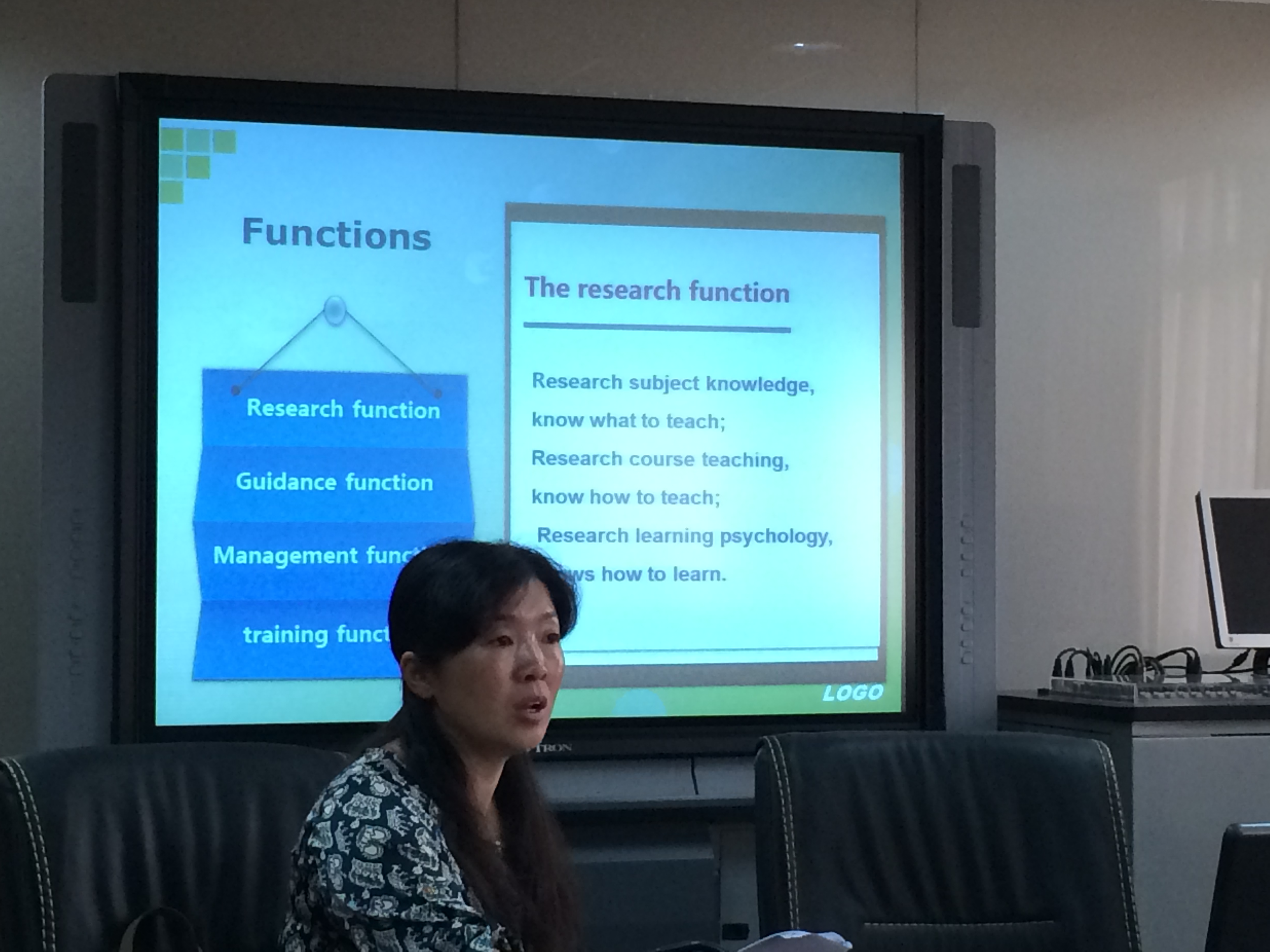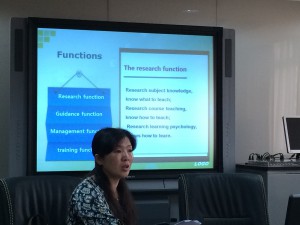
June 6, 2014, by educationguestblog
Becoming a teacher and developing as a teacher in Shanghai
As we go round early years, primary and secondary schools, we are meeting teachers old and young and it is clear that teaching is a respected and valued profession here in Shanghai. Confucius seems to have started it, but everyone maintains that respect for teachers. It is a profession youngsters want to join and the competition for the best normal (education focused) universities is strong. We think the approach to teacher professional development is fascinating.
Initial teacher training (ITT) in Shanghai is totally unlike England’s school based training. Teachers train for three or four years at a Normal University and the content of that training is very different from ITT in the UK. The students do two observation placements of two weeks each and a teaching placement of 8 weeks, before becoming teachers- less practical work than out PGCE students do in a year. However, the rest of their three or four year course ensures a sound grounding in subject knowledge and pedagogical theory. Where do our teachers get that? The contrast with England’s policy that only schools can lead high quality training is quite a surprise.
The structures to support teacher development after the training year are also rather different from in England and we were lucky to have a talk about this from the head of one of Shanghai’s biggest and most successful primary schools. Xu Yonghong. She told us about the stages in a teacher’s career progression.
New teachers (Junior teachers) in their first five years have a mentor and have to get 360 hours professional development to progress to Middle Teacher status. These middle teachers (in their 6th-10th year of teaching have to get 540 hours of professional development to progress to Senior Teacher and they, eventually, can become Master Teachers or Associate Professors. This seems to be supported by regular performance review, as in England, but also by a range of measures to offer support for individuals.
In Shanghai, teachers in a school, whether primary or secondary, belong to a Teacher Research Group. This is partly a planning group but members also do observations of each other’s teaching and undertake action research projects. They do these with the Universities to improve their teaching, and to focus on elements of their work they have identified for scrutiny. Of course, the system is more complicated than this, with various levels of objectives and outcomes but it seems to be very co-operative and less “top-down” than the “inspect and grade” experience of teachers in England.
We have been interested in the importance of observations of teaching. Two of the schools we have seen have special observation rooms with one way glass so that rows of observes can watch unseen. Another school, and the University, have rooms with an array of cameras to capture the teacher and children so that observers can watch in real time then look closely at episodes. We have seen teachers observing other teachers in several of the classes we have watched. What is unusual for us is that observation is supposed to be for the benefit of the observers – to help them become better teachers – not just to grade the teacher’s lesson. The teachers we have observed have been interested in feedback- not in terms of grades, but in our opinions. We are seeing a very different culture of observation and reflection here in Shanghai. Of course, this is underpinned by differences in what a teacher’s role involves. Teachers in Shanghai teach less classes and have more time to plan, mark and observe. They are part of respected, valued profession with high levels of accountability and professionalism.
No comments yet, fill out a comment to be the first


Leave a Reply